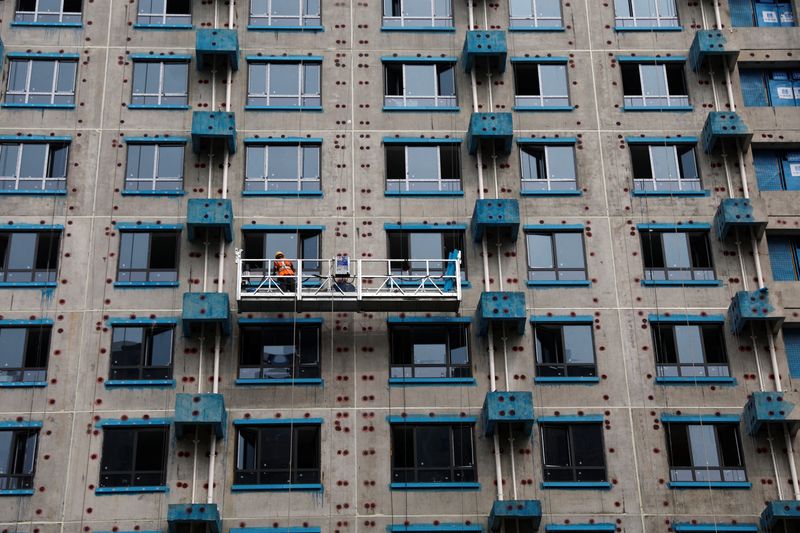SHANGHAI/BEIJING (Reuters) - Simon Yu's monthly mortgage payments for his Shanghai apartment will drop after China's latest measures to support the ailing property sector, but so will the interest he earns on his bank deposits.
Yu's bind highlights the difficulty Beijing faces in kick-starting weak consumer spending. While lowering interest rates eases the financial burdens for households, a dire economic outlook and lack of longer-term reforms in areas such as pensions and healthcare, means consumers don't have the means to loosen the purse strings, analysts say.
"The rate cuts have little impact on my spending power," said Yu, who works for an asset management firm, pointing to one of the government's stated aims for those measures.
China said last week it would cut interest rates on existing mortgages and eased rules for first-time buyers in big cities, in what the central bank and financial regulators jointly said were moves "conducive to expanding consumption."
But to prevent profit margins from shrinking further, state-owned banks have also lowered deposit rates by 10-25 basis points in a coordinated move.
Analysts at Nomura estimate the mortgage rate cuts could save borrowers 200-300 billion yuan ($27-$41 billion) a year. But they also warn that a 15 basis point cut in interest rates on Chinese households' 131.4 trillion yuan of deposits reduces interest income by 197 billion per year.
Mortgage rates for first homes are around 4%, while one-year fixed deposit rates are roughly 1.5%.
"It's more of a redistribution of income," said Ting Lu, chief China economist at Nomura, adding it had "limited" impact on consumption.
Trying to stabilise the property market in an economy where 70% of household wealth is in real estate is not without merit, analysts say. But ultimately, the most effective way to encourage Chinese people to spend would be to transfer resources to consumers from other sectors of the economy, rather than from household savings.
"The main constraint is people's income," said Zhaopeng Xing, senior China strategist at ANZ, adding the rebound in consumer confidence of the latest measures will be "mild."
DEPOSITORS HIT
Yu estimates his monthly mortgage payments would drop by 1,000 yuan, which would be somewhat offset by the lower interest income on his deposits.
In the hope of preserving his future returns, he may move some money into stocks and bonds.
But others are more risk averse, especially amid growing job uncertainty.
Li Xiao, a data analyst in Shanghai, says he will keep the money in the bank despite being unhappy with the lower rates.
"The government wants to boost consumption, but ultimately it's the depositors who bear the costs," Li said. "People don't consume because they don't have money so cutting deposit rates cannot really work."
Guo, who works at a state-owned company in the southern Guangdong province and spoke on condition of partial anonymity, said he plans to keep saving "even if deposit rates drop to zero."
"The economy is bad, and people don't have enough confidence," he said. "Making sure you don't lose the principal is already a win."
Nancy Yang, who works for an auto parts supplier in the central city of Wuhan, said the main reason she is not spending her money is that her employer did not pay out end-year bonuses for 2022.
"I'm not saving for the small amount of interest, but because there are too many uncertainties: unstable businesses, no rise in income, mortgage payments, child raising," Yang said.
"Keeping cash is really important."
($1 = 7.3108 Chinese yuan)
